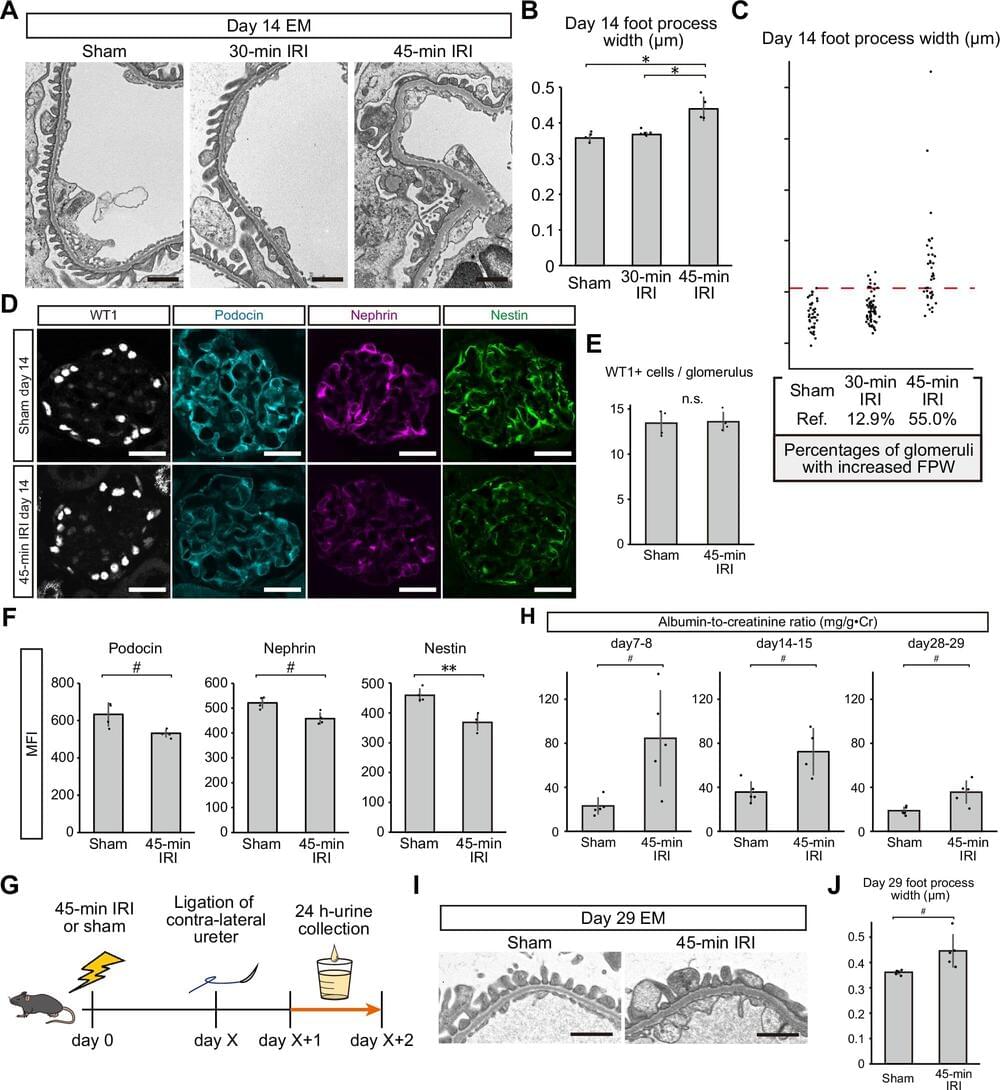Acute kidney injury (AKI) often occurs as a result of ischemia, which is a condition in which blood flow to part of the body is restricted, depriving tissues of oxygen and nutrients. This damage is commonly followed by reperfusion (that is, the restoration of blood flow), but this process can sometimes exacerbate injury through oxidative stress and inflammation. This is called ischemia-reperfusion injury.
AKI remains a significant clinical challenge with limited treatment options and poor outcomes. Recent studies suggest that proteinuria, where protein leaks into the urine, is a common feature and associated with poor long-term renal prognosis after AKI. However, the mechanisms underlying proteinuria and its links to kidney cell damage are still unclear.
In a new study published in Nature Communications, researchers in Japan led by Dr. Motoko Yanagita focused on the role of podocytes, which are specialized kidney cells crucial to filtering blood. In particular, they looked at the energy requirements of these cells during ischemia-reperfusion injury.
